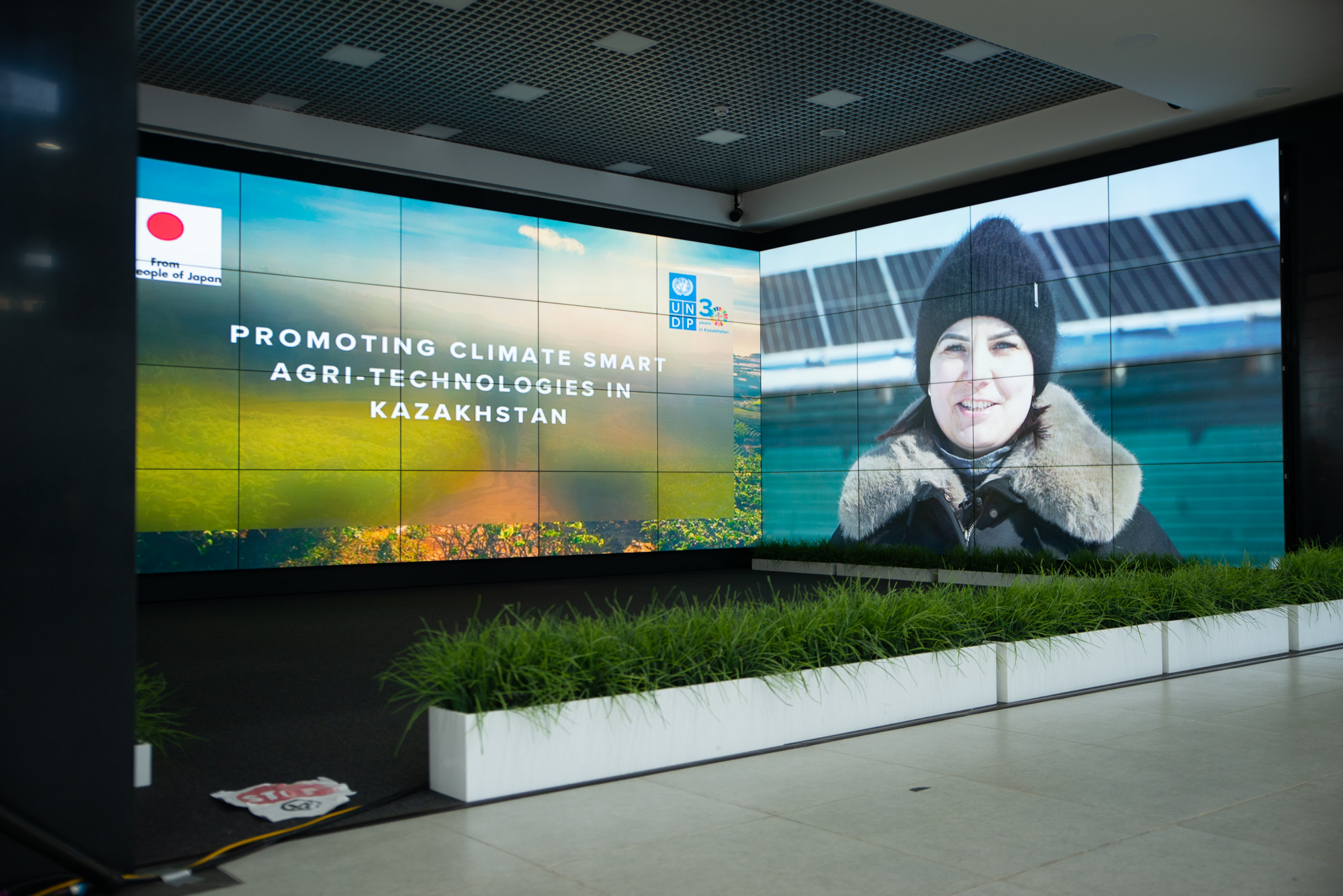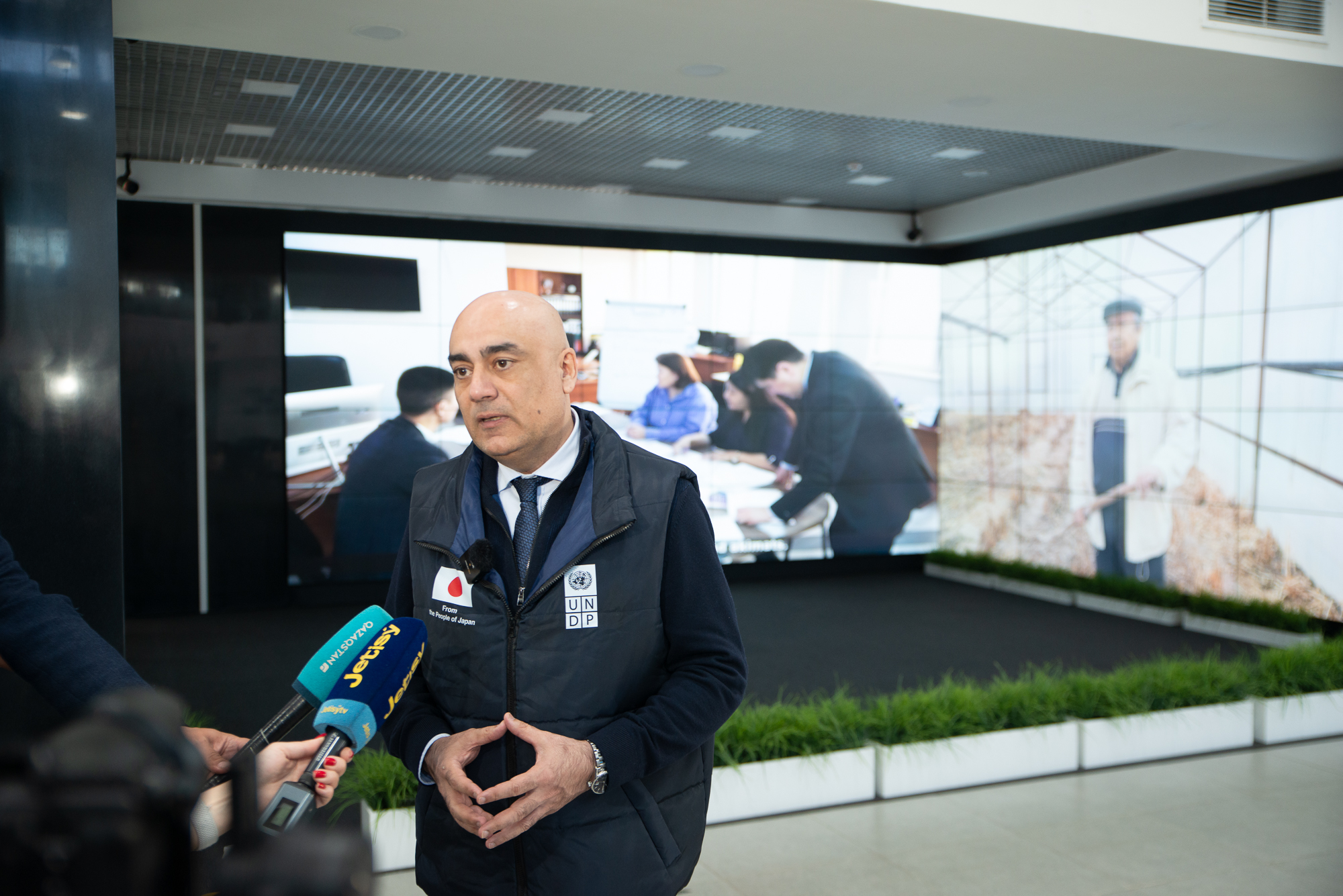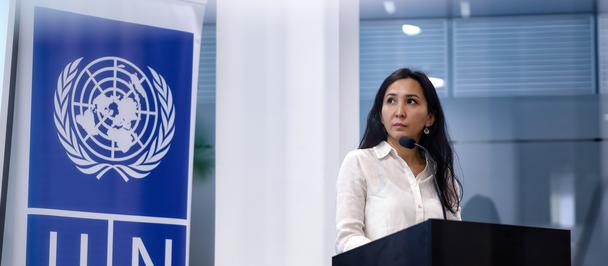UNDP Completes project on climate-adapted agricultural technologies
March 29, 2023

Astana, March 29, 2023 – The United Nations Development Programme (UNDP) in Kazakhstan has completed the implementation of a $974,408 sustainable agriculture project funded by the Government of Japan. The initiative focused on introducing climate-smart agricultural technologies to support local farms in the region and updating Kazhydromet RSE equipment to predict and prevent droughts.
"Adapting to the impacts of climate change is critical because of its rapid pace. UNDP is honored to support national efforts to integrate climate change adaptation priorities into the Republic of Kazakhstan's NDCs. Particular emphasis is placed on ensuring water and food security, protecting economic infrastructure from severe climatic events and natural disasters, and protecting natural resources,"said Sukhrob Khojimatov, UNDP Deputy Resident Representative in Kazakhstan.

The project selected 10 farms in Kazakhstan to implement renewable energy solutions (using wind and solar power).
During the official closing of the project, representatives of UNDP, “Atameken” National Chamber of Entrepreneurs and the Akimat of the Zhetysu region visited a farm in Sarkand district that specializes in growing medicinal herbs and where a water-saving system has been installed.
"We feel the effects of climate change more every year. Despite frequent droughts, we were not able to use additional water-saving technology despite frequent droughts. Thanks to the project, we are now applying rational irrigation methods that allow us to save 50 percent moisture and prevent soil leaching,"said Alexey Korzhikov, Director of “Asia Gold”, a project participant.
In addition to implementing green solutions, the project also had an educational component. More than 400 farmers from 17 different regions of Kazakhstan participated in training sessions that focused on integrating renewable energy sources into agricultural production. Representatives from pilot farms visited Germany on a study tour, where they had the opportunity to visit pellet and biogas production facilities, as well as a fully operational dairy farm and village powered by clean solar energy. The programme was an invaluable experience for the participants and provided them with practical insights and knowledge about the benefits of renewable energy and its application in agriculture.
"For this project in Kazakhstan, we have selected 10 farmers from different regions and sectors that can use renewable energy sources in their production facilities. These solutions include solar panels, sprinkler and drip irrigation systems, and solar heating for water. Our goal was to introduce the most advanced technologies on our pilot sites. Although it is entirely possible for larger entrepreneurs to adopt these technologies on their own, our primary focus was to show small farmers practical applications for these solutions. This includes demonstrating how these technologies can be used in crop and livestock production in both the southern and northern regions of Kazakhstan,"said Erbol Eseneev, Acting Deputy Chairman of Atameken NCE.

 Locations
Locations





